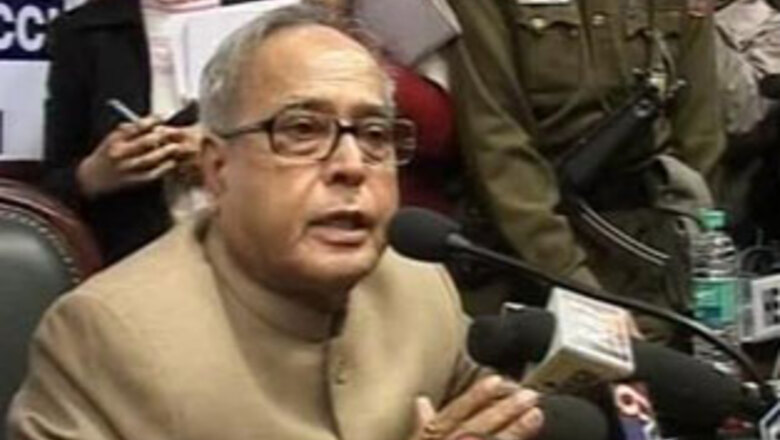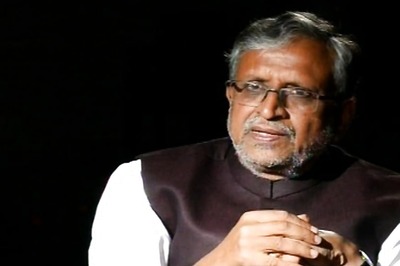
views
New Delhi: The attack on Sri Lankan cricketers in Pakistan exposes Islamabad's lack of will in tackling terror, which in turn poses a major hurdle to the process of change, External Affairs Minister Pranab Mukherjee said on Friday.
"States that have used terror as an instrument of state policy should be left with no choice but to dismantle their infrastructure of terrorism and actively cooperate with the international community to eliminate this scourge," Mukherjee told the India Today Conclave in Delhi on Friday.
"The world at large is slowly but surely moving in the direction of reaching the threshold of zero tolerance of terrorism," the minister said.
"As this week's reprehensible attack on Sri Lankan cricketers in Lahore shows, government's lack of will or capability in tackling this menace becomes a major hindrance in the smooth process of change."
Six Sri Lankan cricketers were injured and eight people were killed when gunmen armed with automatic weapons attacked the visiting team's convoy that was headed for Lahore's Gaddafi stadium Tuesday.
Mukherjee said such threats needed the efforts of the international community at large to ensure that terrorism is eliminated on an urgent basis, as no part of the world would otherwise remain immune to the flames being ignited there.
"These developments are most disturbing for every right thinking person in the world and, without doubt, for us Indians," he said, speaking on the theme - "Government: Is It A Hindrance Or Facilitator Of Change?"
According to the minister, the government's ability to manage and facilitate change in the interest of its people was possible only when it was itself responsive to the aspirations of its citizens.
"The manipulation of popular opinion through spin or by the undermining of the institutions' crucial role for democratic functioning can only result in short-term gains and long-term failures."
Having spent a better part of his life in public service and in the government, Mukherjee believed that the government was more often a facilitator and, at times, a regulator of change.
"Indeed it should be so in any democratic society."
He said the public in rich nations could not reconcile itself to the fact that their governments, which swear by free market principles, were today unlearning the meaning of the expression of free market.
"Who could have imagined, even a few months ago, that Western governments would be nationalizing banks as they find themselves facing stark choices in the midst of deepening uncertainties?"
Mukherjee also listed three factors that made a government facilitator of change. "The three main factors in my view are: Leadership, vision and expertise."















Comments
0 comment